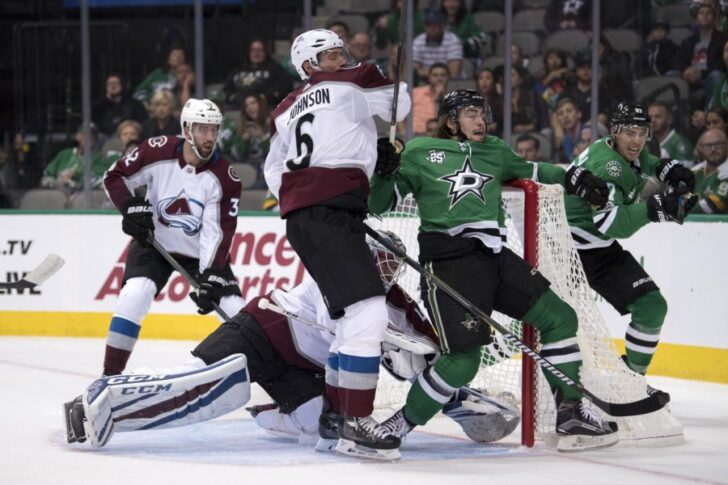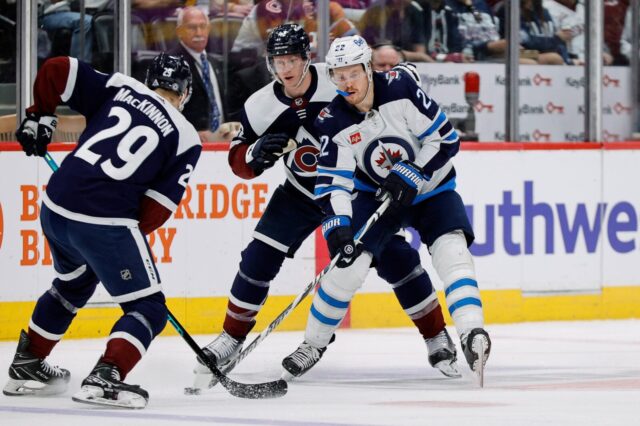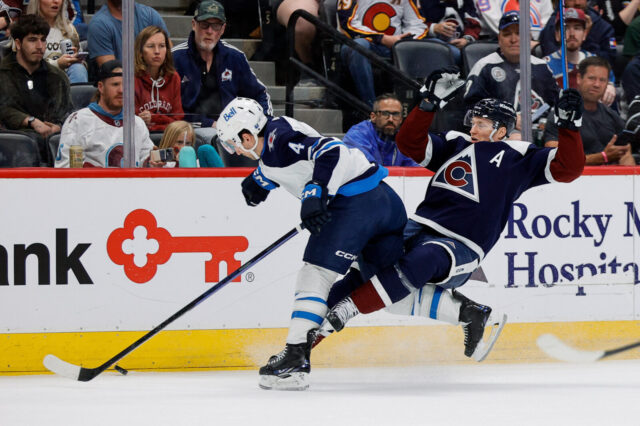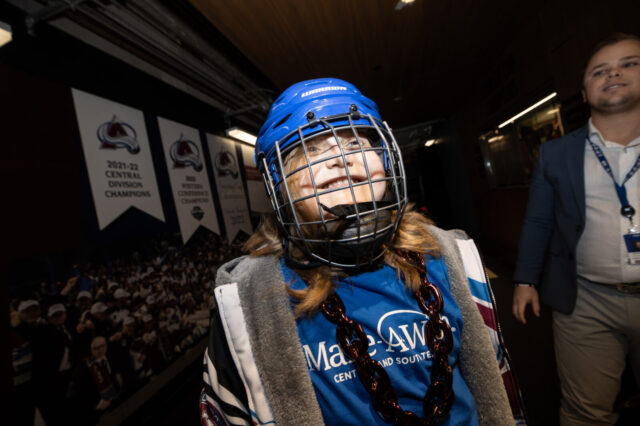As the Avalanche look to erase the memory of last year’s struggles and create a new identity for this year’s team, improving the penalty kill is paramount. Statistically, the Avalanche were 29th in the league on the penalty kill last year, getting scored on a whopping 23.4 percent of the time of the time they were at a disadvantage.
While this year’s team hadn’t been scored on during five-on-five play in the first three games, they still allowed five goals while on the kill in the first two. In fear of following the trend from last year, adjustments had to be made.
“We collectively thought we could clean up some things,” Avalanche defenseman Erik Johnson said. “We cleaned up the things that we thought we could get better at, eliminating teams going through the seam — and it worked out for us.”
The changes have indeed worked. After allowing five goals on twelve penalties in the first two contests, the Avalanche have allowed only one goal in their last eight kills in Colorado’s last two games.
“We looked at those things, cleared the air on what needed to be worked on, and now we need to just keep continuing on with it,” Johnson said.
“When we got tired, we got way too spread out. When we get tired, we’ve got to collapse around our net. We need to do a better job of being efficient when we are short-handed; you don’t need to run all over the ice — a lot of it is stick positioning.”
Defensive coach Nolan Pratt is in charge of running the penalty kill, so there isn’t much of a philosophy change from last season. Minor adjustments were made, however, and because it is still early in the season, the Avs have had to learn on the fly.
“We’ve made some adjustments, as far as how we want to pressure in-zone. A lot of times you don’t get a ton of time to go over special teams, we got some video we were able to look at and we were able to make some adjustments.”
For coach Jared Bednar, the most important changes are as basic as it gets. “Well, number one (difference), we’re taking [fewer] penalties,” Bednar stated. “You look at the second game in Jersey, we had six penalties. It’s like every time we start getting going, we’re taking another penalty.”
“There’s a little bit more buy-in, a little more urgency and the clears,” Bednar continued. “You’re out there, you kill a penalty for 30 seconds, you grab the puck and get a failed clear, now you’re gassed, and teams are going to pick you apart. You’ve got to be able to get the puck down the ice when you have the chance, and we’ve been doing that the last couple of games.”
In a season where a few rule changes have been made and there will be a conscious league-wide effort to call more penalties, special teams will play an extremely important role across the NHL.
The Avalanche penalty kill will be a vital component in Colorado’s continuous effort to turn things around. Under their new PK mindset, they will continue to study and make the adjustments according to their new strategies, but overall discipline appears to be the message from the coaching staff.
Getting out of the league’s statistical basement in this category is just one of the many areas of focus for the Avs. They must build off of the significant progress already made and continue improving. Finding success on the penalty kill will prove to make a world of difference in game results throughout the season and the standings further down the road.



